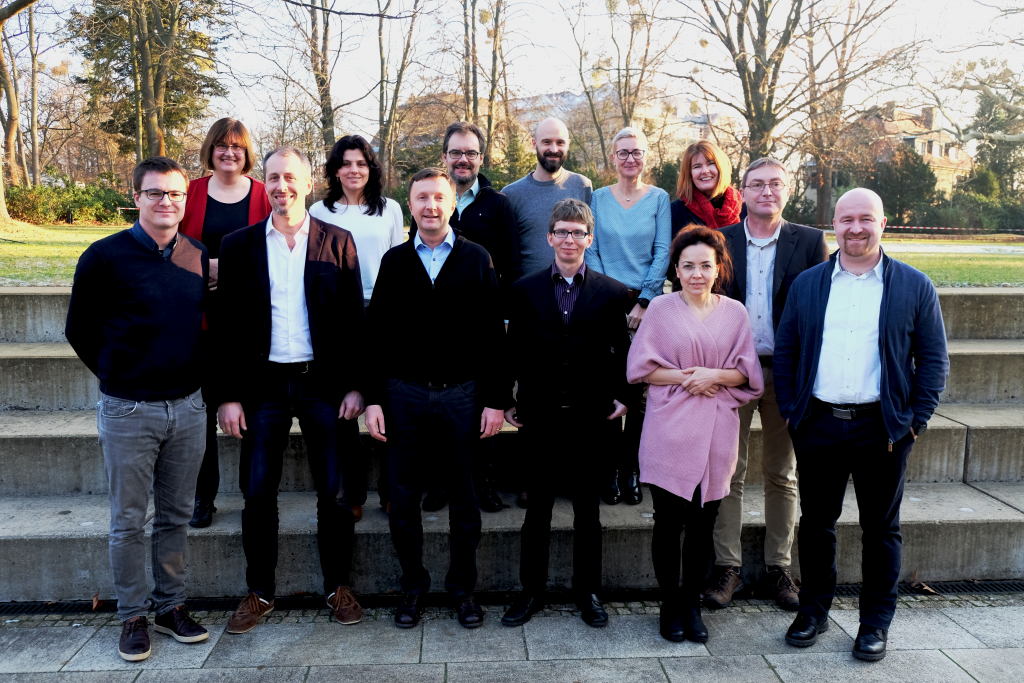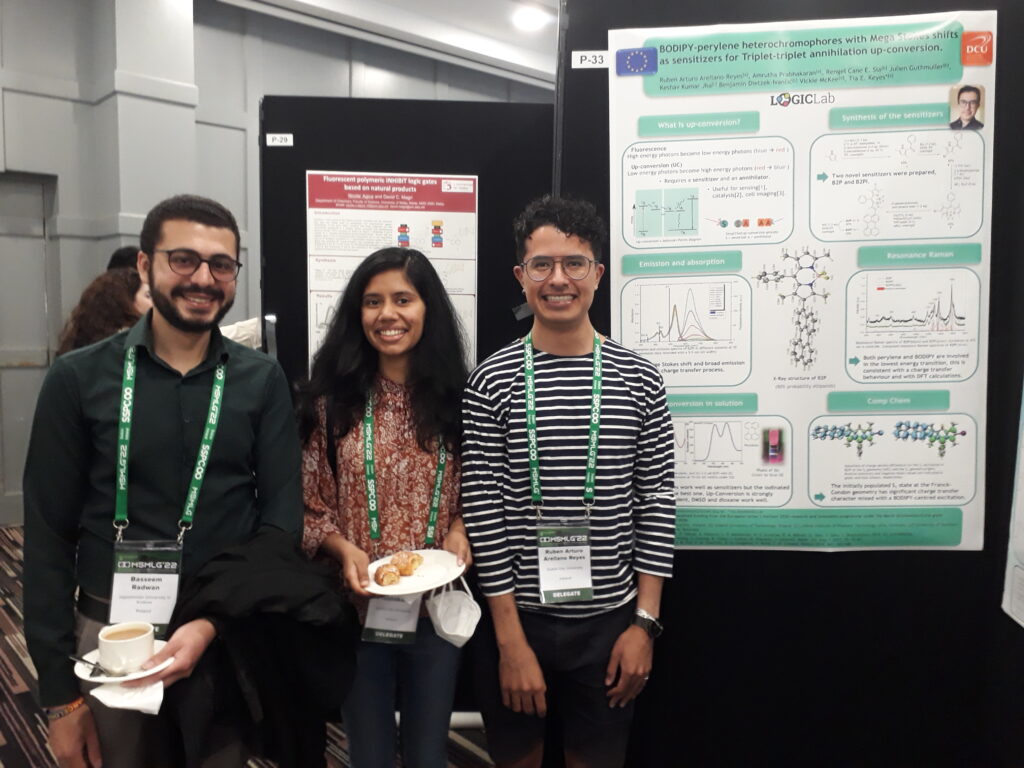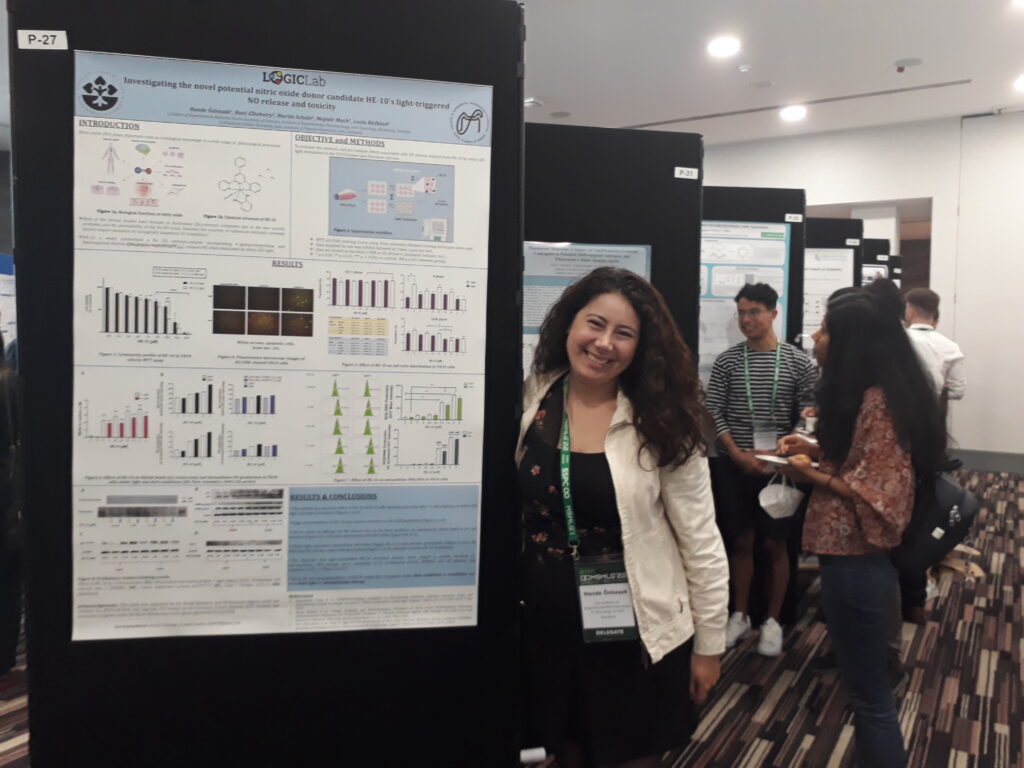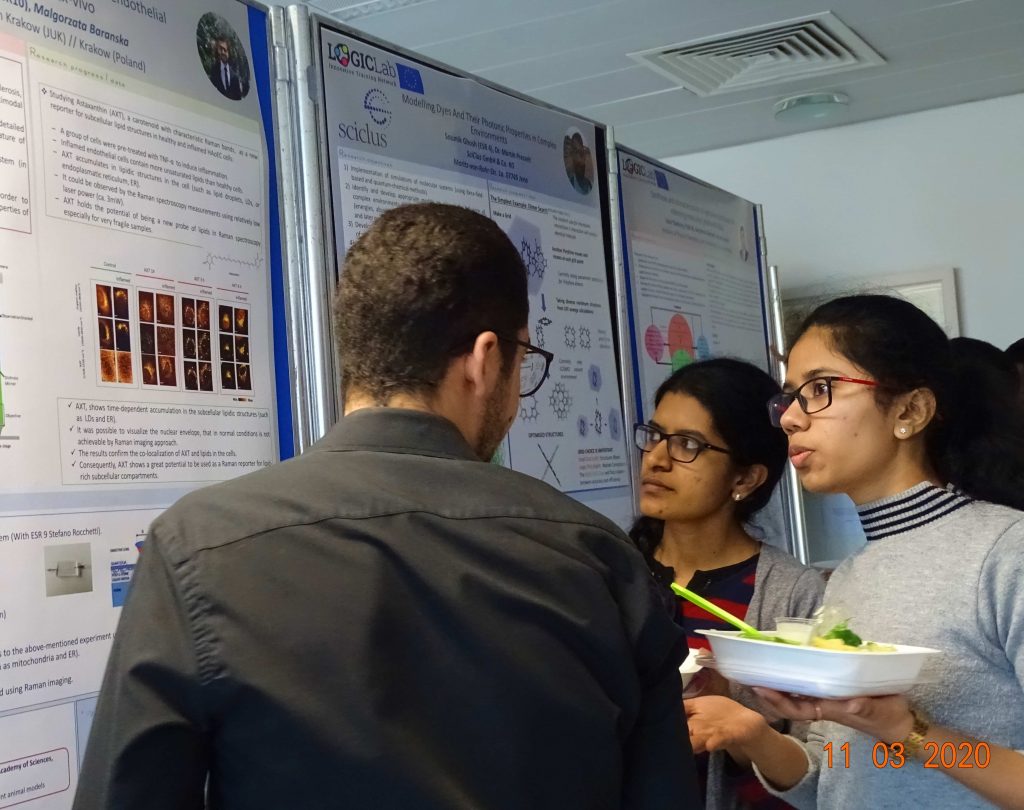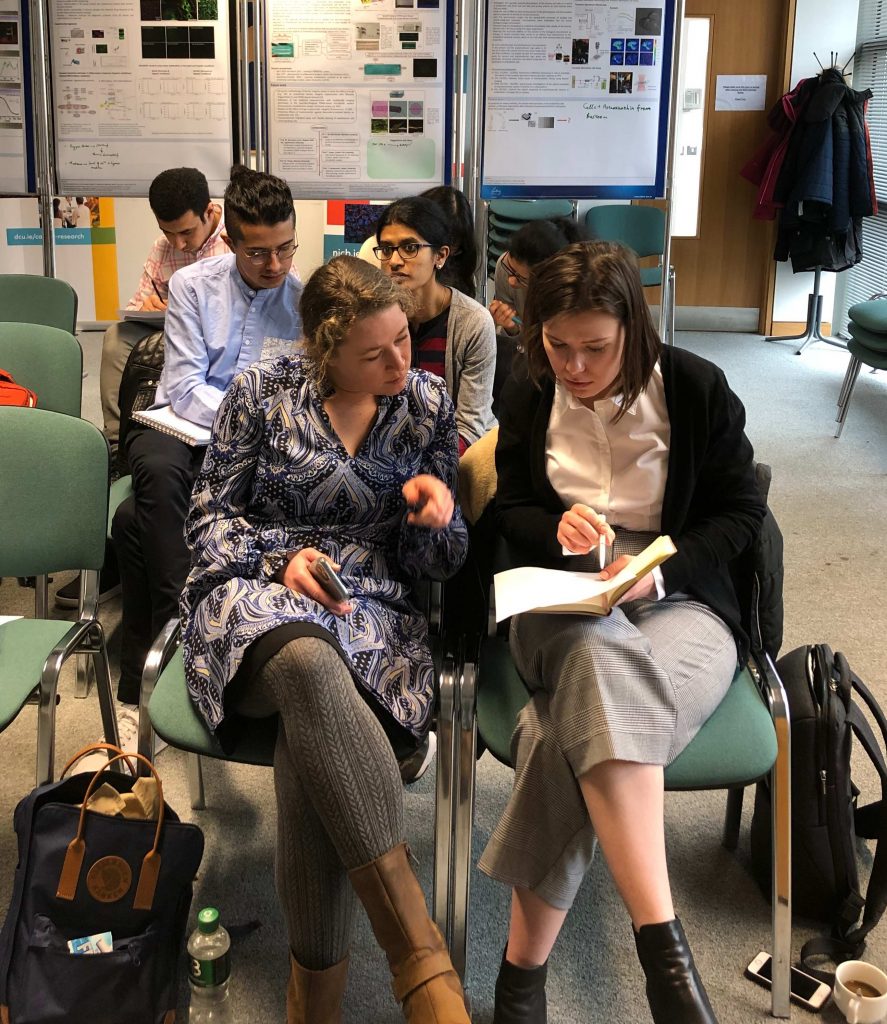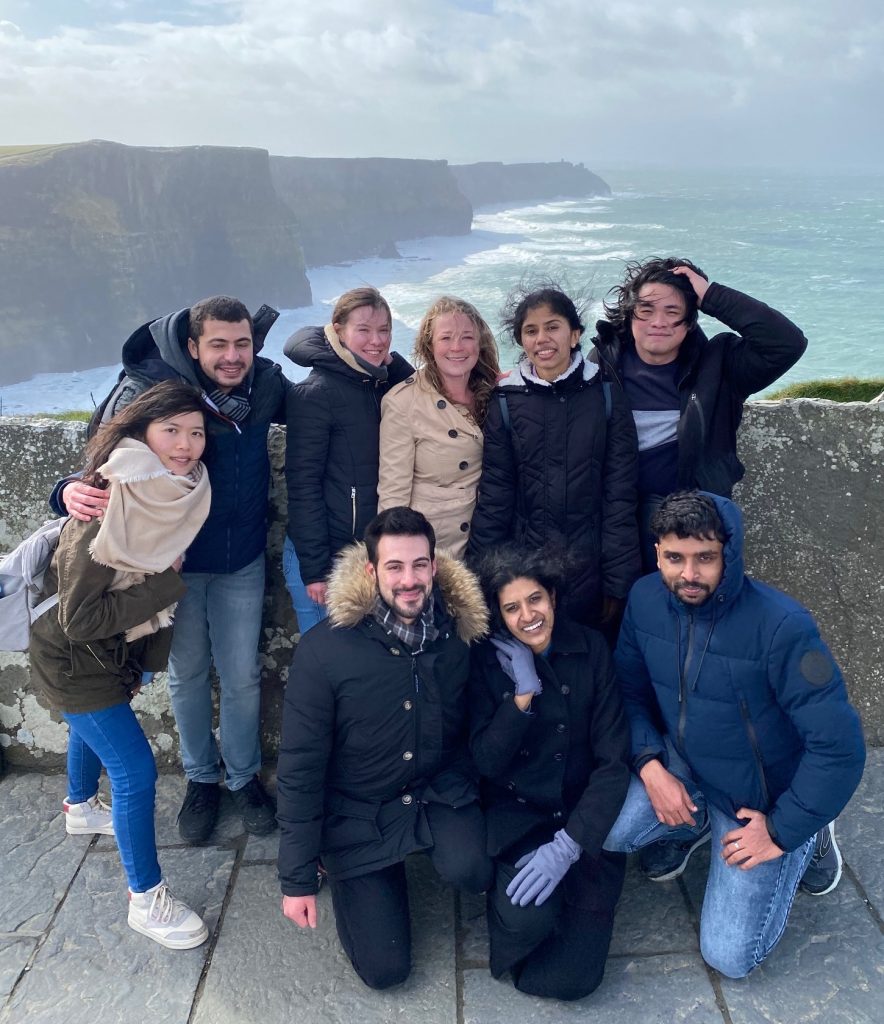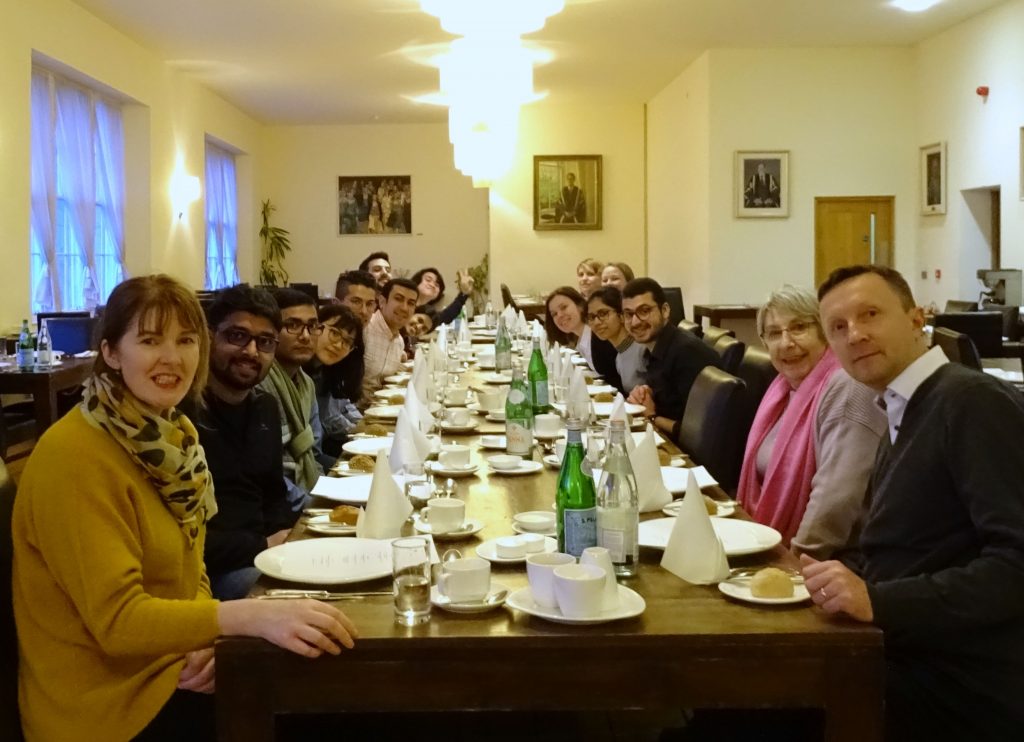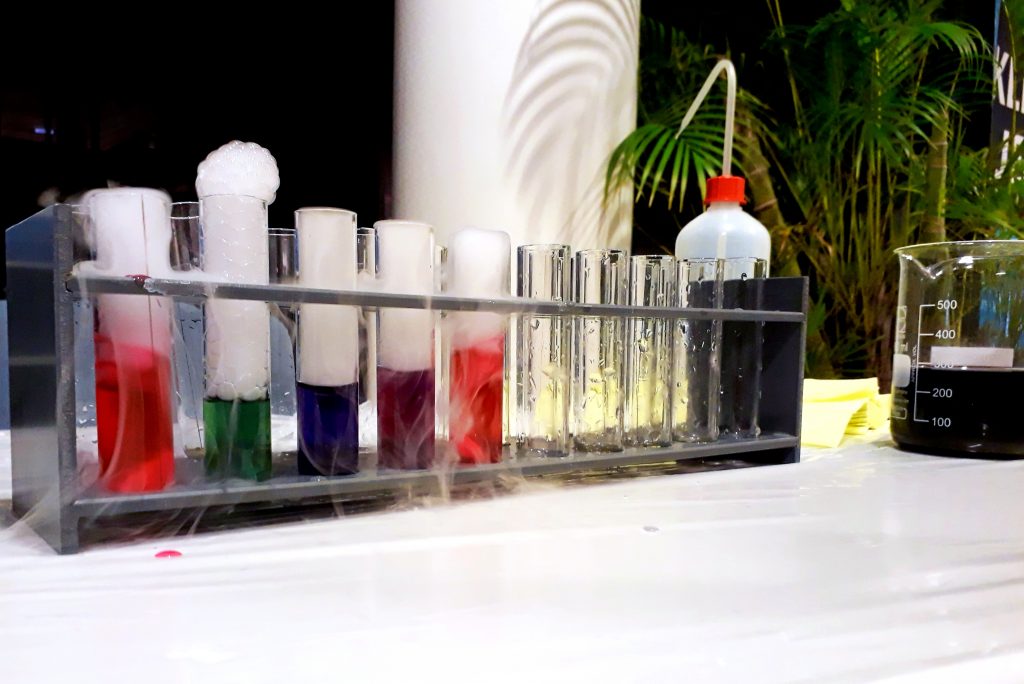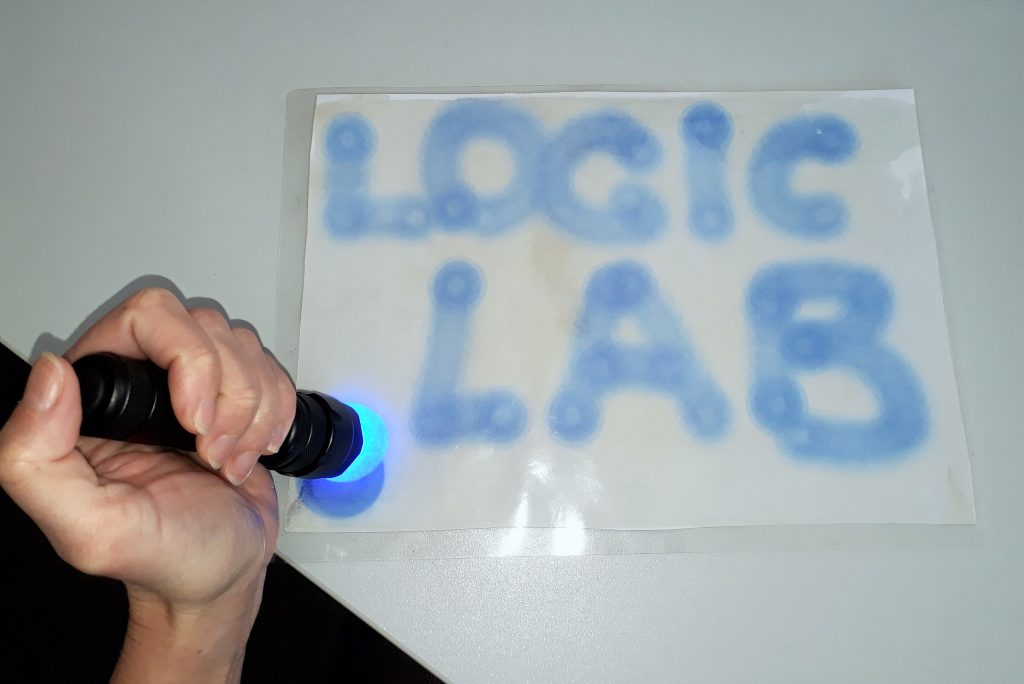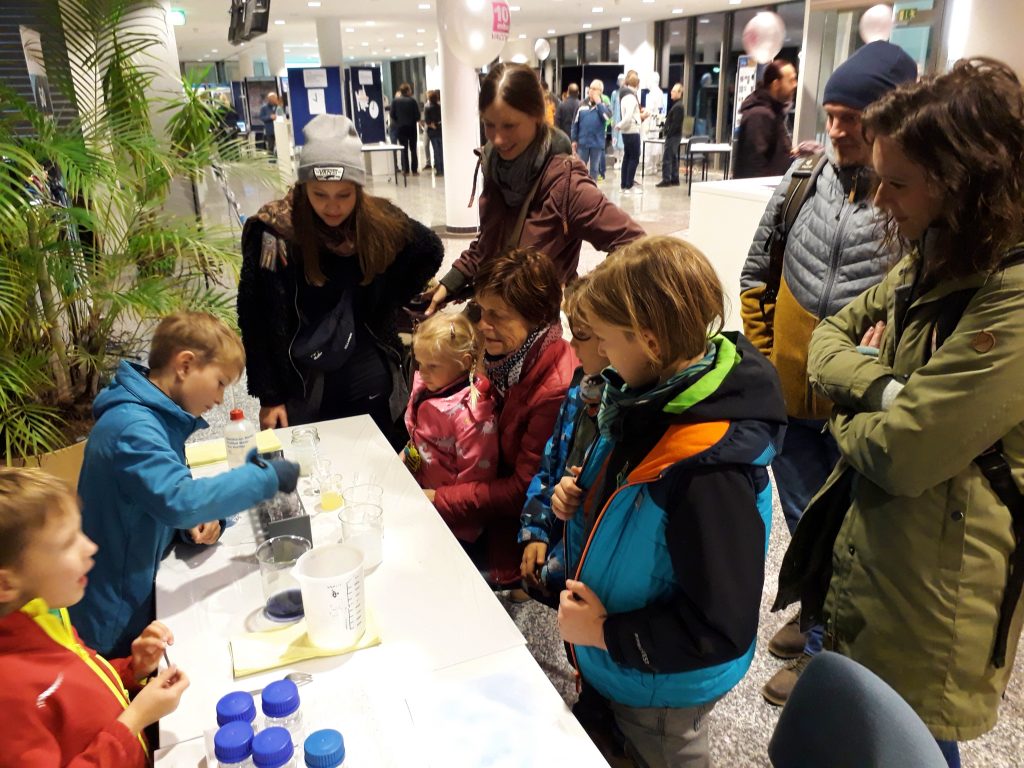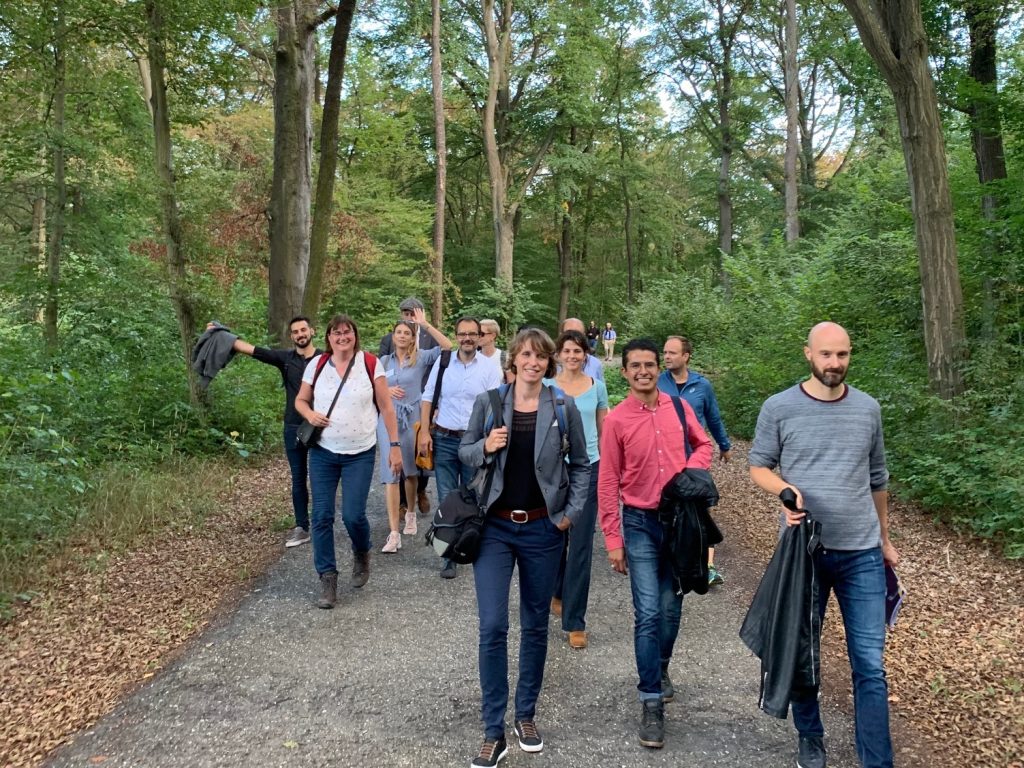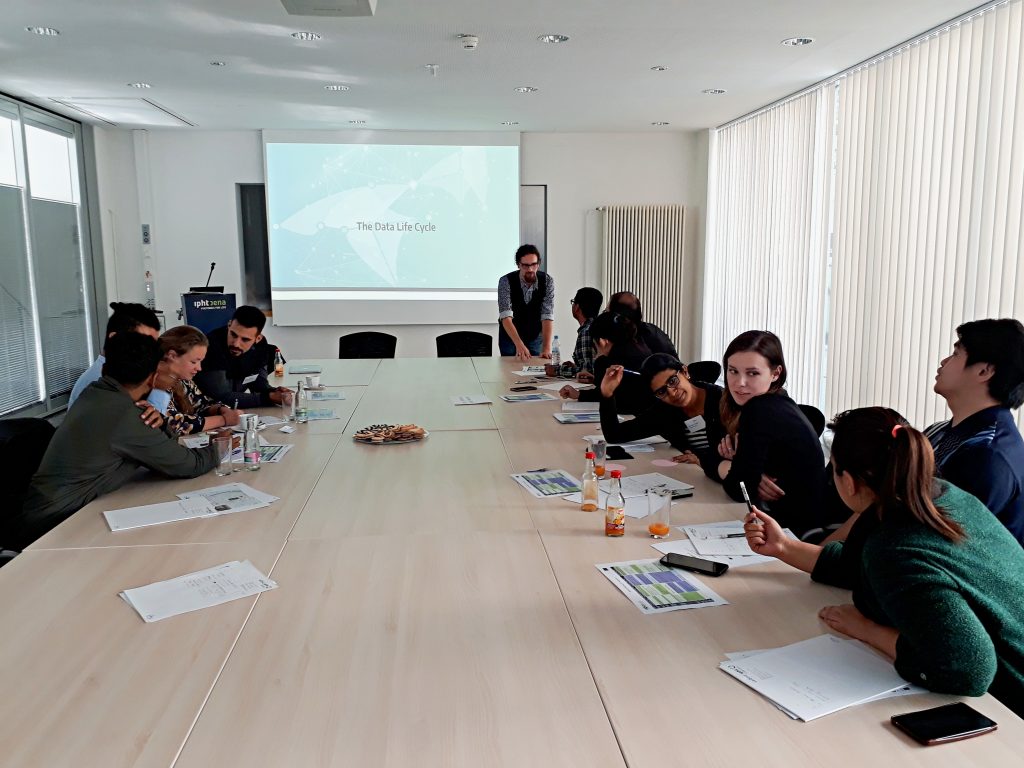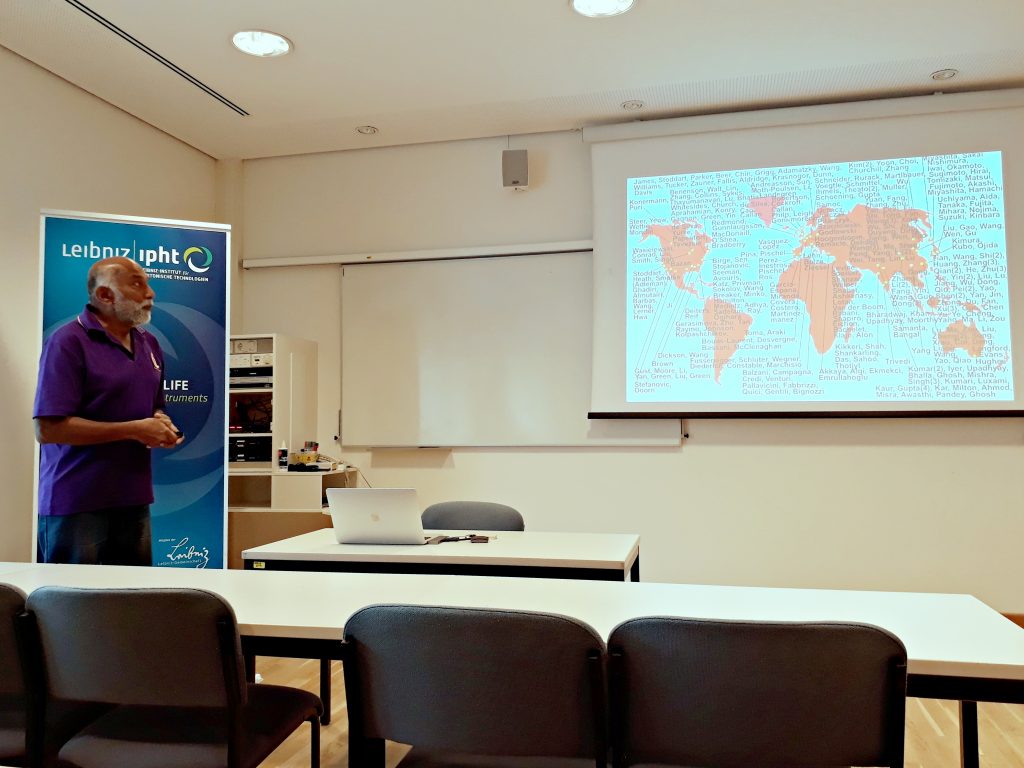Our ESRs at the MSMLG’22 in Dublin and at the photoIUPAC in Amsterdam
After a long break from in-person scientific events, our ESRs took the opportunity to present their work at international conferences during this summer. Hande, Amrutha, Ruben and Basseem attended the 7th International Conference on Molecular Sensors and Molecular Logic Gates in Dublin and discussed their progress during the poster sessions.
Tingxiang, Valeriia, Rengel and Aswin joined the 28th IUPAC Symposium on Photochemistry that took place one week later in Amsterdam.
Symposium on Molecular Biosensing – From Theory to Practice
We organized an online Symposium on Molecular Biosensing – From Theory to Practice. The symposium took place from November 17th – 19th 2021.
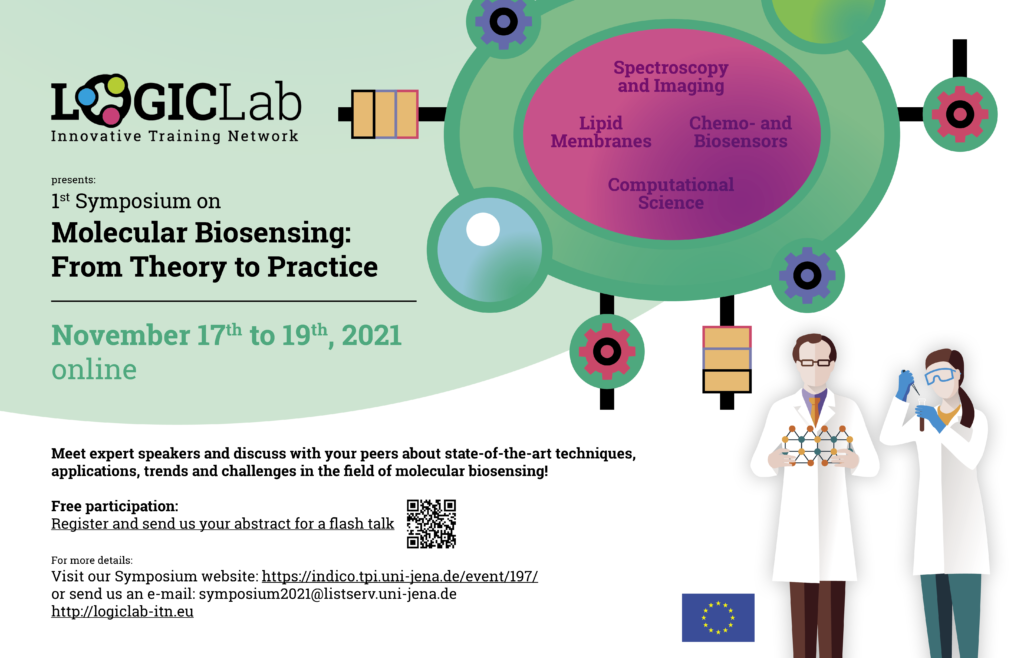
We explicitly encouraged early-stage researchers, PhD students and postdocs, to join the symposium. We aimed to make the symposium an open place where researchers from various disciplines can share and discuss their approach to molecular biosensing. Topics include, but are not limited to e.g. synthesis of new fluorescent sensor molecules and molecular logic gates, advanced time-resolved spectroscopy, super-resolution microscopy, Raman-bioimaging, biophysical studies of lipid bilayers and computational approaches to photophysics and membrane modelling. Our goal is to advance the exciting research field of molecular biosensing by fostering networking and collaboration among early-stage researchers.
For more details visit the Symposium’s website.
Welcome, Hande!
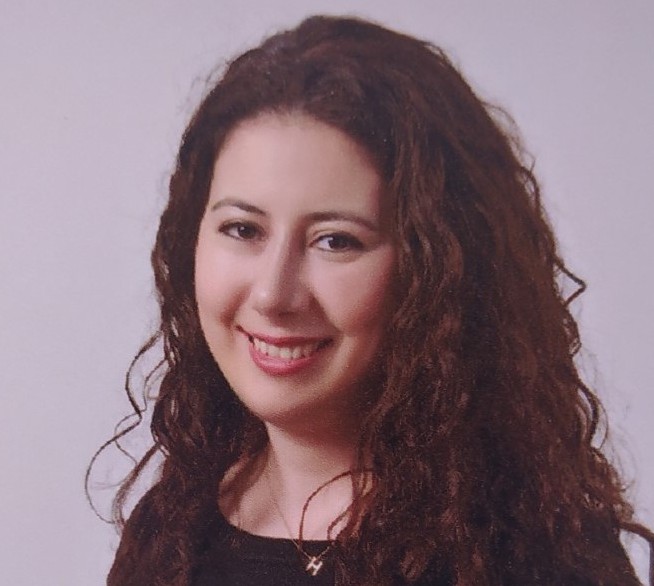
In May 2021, Hande Özbaşak started her position as ESR12 at the Centre of Experimental Medicine in Bratislava.
Hande was born and raised in İstanbul, Turkey. She graduated with a bachelor’s degree in Biology from Istanbul University and obtained her master’s degree in Pharmacology from the Faculty of Pharmacy Hacettepe University in Ankara. Hande’s master’s thesis was “The Effect of Atorvastatin on Sestrin-2, Sirtuin-1, TPP1 and LC3B in Amyloid Beta Induced Alzheimer’s Disease Model in Human Neuroblastoma Cell Culture.”
The aim was to investigate the pathogenesis of the relationship between Aβ-cholesterol pathways and autophagy-related pathways. During her master’s thesis time, Hande got experience in cell culture techniques and created an Alzheimer’s disease model in cell culture as well as performed the experimental acute systemic toxicity assay using lab animals and cytotoxicity assays according to ISO standards at department of Pharmacology, Faculty of Pharmacy. Before she joined the LogicLab network, Hande worked as a Molecular Biologist in a company that produces in-vitro diagnostic Real-time PCR kits such as SARS-CoV-2. In LogicLab, she will evaluate the cytotoxicity of novel compounds such as membrane compounds and NO-releasing compounds that are established by her colleagues in the project. In her free time, Hande enjoys biking, dancing and swimming.
We wish her a good start in Bratislava and look forward to meet her in person.
From one lockdown to the next- Soumik’s first year in Jena and his secondment at Dassault Systèmes
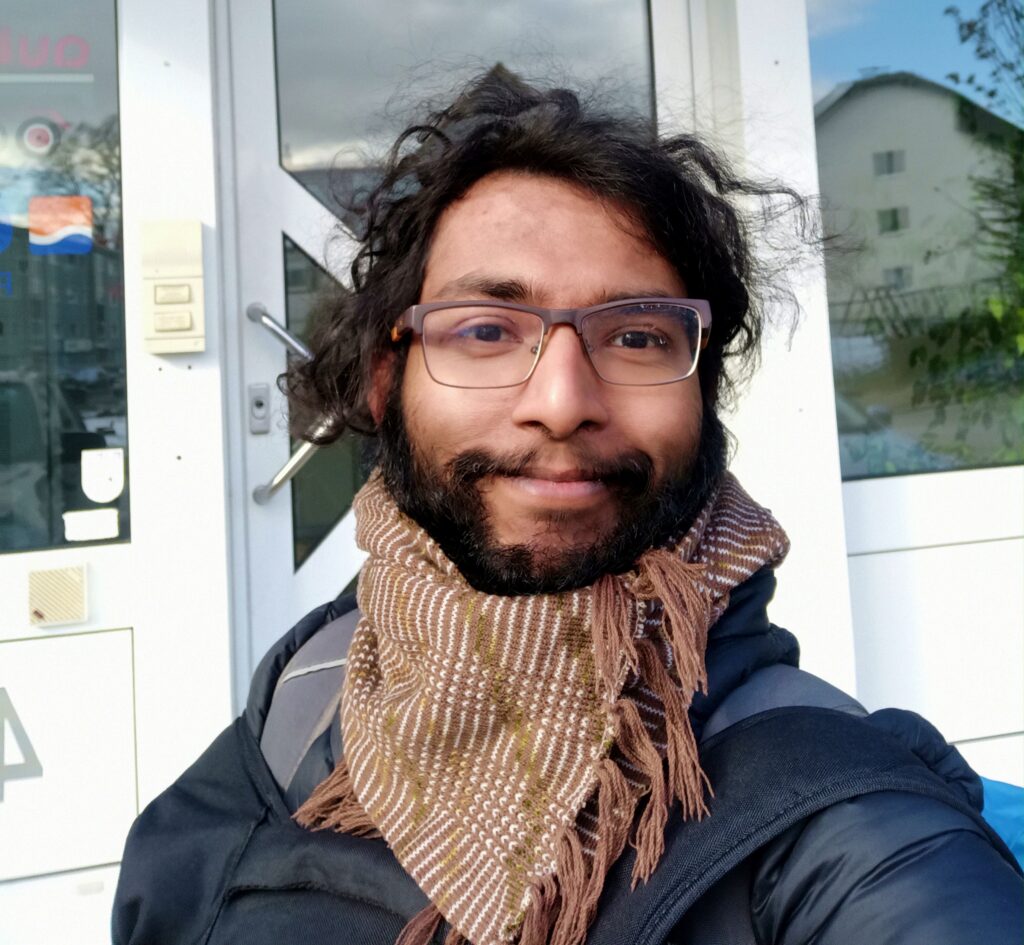
More than a year has passed since I joined the ranks of 13 other young researchers in Logic Lab. Looking back, my work on trying to use computational methods to model complex environments has made progress. Working in an interdisciplinary project is hard, but thanks to the various meetings and talks, I can learn of the work of our network partners and can contribute in a more meaningful way.
I arrived in Jena for my project at a time when the COVID-19 pandemic started to rear its head. It was a challenge to get set up, but through all the help from the colleagues and friends here, I settled in very well. I never felt my lack of knowledge in German as a barrier as I went through my life and work here. Work progressed as the marvelous powers of internet and telecommunication helped me connect and collaborate not only with fellow colleagues here but with others of the network from all around Europe. It also allowed me the opportunity to attend the second network meeting and interact with all my friends, when I couldn’t go to Dublin! I have lived all my life in Kolkata before coming here, and compared to the hazy smog, large buildings and bright city lights of a large city like Kolkata, the clear and open skies of Jena offered a refreshing change and helped me pick up cloud and star gazing as a new hobby.
I also had the pleasure of taking part in one of the key features of the project – secondments to partners. I spent three months in Leverkusen with the Solvation Chemistry group of BIOVIA at Dassault Systèmes Deutschland GmbH arming myself with various new tools to tackle the current problems. It also gave me a small insight into the inner workings of research groups at a large company. Sadly, lockdown restrictions also came into play soon after I arrived. It was quite disheartening to be in a new city working with new people, all experienced in a field I am so interested in, yet only interacting through a screen in a room. Work progressed well, but it was hard to get to know a place working mostly from home. Yet among all of this, I celebrated my first Christmas in Germany with my landlord and his family, had my first homemade full course “Christmas” dinner, saw my first flock of hundreds of migratory birds and, most importantly, made my first snowman.
The current pandemic situation has affected people everywhere. Yet through all of this adversity, we have managed to progress with life and work. And, as with all the adversities we have faced before, we will adapt and we will thrive. Knowing that the harder the test, the sweeter the rewards, I look forward to the next year – to see how much I learn, how much I grow and, of course, to experience first-hand how we help each other overcome all these hurdles together as a community.
—
Early-Stage-Researcher position available at the Centre of Experimental Medicine of the Slovak Academy of Sciences from January 1st, 2021
Candidates with a background in cell biology, biochemistry or toxicology are invited to apply for a PhD position in the department of Cell Pharmacology and Developmental Toxicology at the Centre of Experimental Medicine of the Slovak Academy of Sciences, Bratislava (supervisor: RND Mojmir Mach).
The topic of the PhD study will focus on evaluation of cytotoxicity and applicability of novel fluorescent reporters designed for simultaneous multicolour detection of reactive nitrogen (RNS) and reactive oxygen species (ROS) at the cellular level. The cytotoxicity will be evaluated by standard assays (such as MTT, neutral red uptake assay or cell cycle analysis) in the cellular models (microglia, fibroblasts, endothelial cells). The probes specificity will be evaluated in cell and cell-free systems exposed to different ROS and RNS as well as in the systems simultaneously generating these species (such as LPS-stimulated microglia, as the brain resident macrophages) using fluorescence-based methods. The probe applicability will be validated in such cellular models as microglia or brain microvascular endothelial cells. The methods based on novel molecular logics will be compared with standard methods of detection of RNS and ROS and confronted with biological consequences and signalling pathways of RNS and ROS generation (such as the expression of iNOS protein or proteins involved in regulation of the endothelial function).
Scientific training in partner institutions include study of metabolomic approaches to assess cytotoxicity of sensors in in-vitro cell cultures during a 1 month secondment at University of Leiden (The Netherlands), evaluation of microfluidic artery models as experimental platform for pharmacological research during a 2 month secondment at the company Mimetas (Leiden/The Netherlands), and study of signalling pathways of endothelial dysfunction during a 2 month secondment at Jagiellonian University of Krakow (Poland).
The candidate must have a Master/Engineering degree in Biology, Biochemistry, Pharmacology, Chemistry or related sciences. The candidate should have good knowledge and interest in both experimental and theoretical work. Interest in the field of cell biology is required. Knowledge in the field of ROS-sensitive probes and a track record in scientific publications are great assets. Fluent communication skills in English, both spoken and written are required.
Highly competitive and attractive salaries are offered, plus mobility and family allowances as applicable. The successful candidate will be part of the EU-funded Marie Skłodowska-Curie Innovative Training Network (ITN), Logic Lab. The employment within the project will have a maximum duration of 24 months (depending on the start date of the contract), however an extension might be possible upon availability. As an equal opportunity employer IEPT CEM SAS is committed to increase the percentage of female scientists and therefore especially encourages them to apply.
Candidates will be required to meet the Marie Skłodowska-Curie Early Stage Researcher eligibility criteria: (http://ec.europa.eu/research/mariecurieactions/). In particular, at the time of appointment candidates must have had less than four years full-time equivalent research experience and must not have already obtained a PhD. Additionally, they must not have resided in Slovakia for more than 12 months in the three years immediately before the appointment.
How to apply:
Applications should be sent to Dr. Mojmir Mach at mojmir.mach@savba.sk. Informal enquiries may be addressed to Dr. Mojmir Mach at mojmir.mach@savba.sk.
The application must be accompanied with the following documents in PDF format:
• letter of motivation,
• curriculum vitae of at most 3 pages,
• transcripts of records from University/University College and copy of your degree
• copy of master’s thesis or any other publications (if available),
• two written recommendation letters (e.g. one by your Master thesis supervisor) and the referees contact details
Planned start date: 4th January 2021
Deadline for application: 21st December 2020.
Amrutha walking in the land of lipids
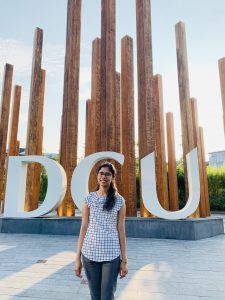
I couldn’t believe that it’s been one year since I started my Ph.D. One year has flown so quickly and I have stepped into the second year of my Ph.D. life with more hopes and plans. It was challenging during the initial period to start research in a field that is completely new for me. At the same time, it was thrilling to work in an interdisciplinary field as a part of the Logic Lab.
I came out of India for the first time and I do remember how curious I was during my first international journey to Ireland. I always wanted to explore new things and to come out of the shell of my comfort zone. After reaching here at DCU, Ireland, I felt welcomed due to a friendly atmosphere here with a lot of nice people around. It was a bit easy to be in Ireland since it is an English speaking country even though it took a while to understand their accent.
Fourteen people from different parts of the globe who have been working in 5 different countries across Europe and the networking between us is amazing. Each meeting helps us to understand more and the discussion on science is fascinating. I couldn’t attend the first network meeting held in Germany as I couldn’t manage to get a visa. But the second network meeting in Dublin helped me to meet some of them in person. Like everyone, COVID-19 affected our work and we had to spend almost 4 months inside the apartment. Now we are back to the lab and the online meetings are of great help to share the progress.
The most interesting part of this project is that I am getting a chance to learn exciting science and associated techniques; among which I have learned many and some of them are still ongoing. It’s really enthusiastic to work in a vibrant group with a supportive supervisor. I am learning to walk here in the land of lipids to understand membrane science and am enjoying it every day. Looking forward to the coming days with an upconverting mind of high energy.
Living in a city I have never even imagined visiting – Ruben’s experience in Dublin

In the list of all the places I have ever wished to live in or to visit there wasn’t even a mention of Dublin. And yet, I’ve been living here for almost a year now, and this adventure has changed me in more than one manner.
The way I see education-related topics has been evolving, by necessity or by choice, in the twenty years I’ve spent so far in education establishments. I could say that there has always been a short phrase or slogan that describes my approach to the academic aspects of my life and helps me determining goals, a sort of school-philosophy. In elementary school, in my younger and more vulnerable years, it was surely something like “don’t look bullies in the eye and keep walking”. A couple of years later, in high-school, that changed to “pimples are not permanent; you will survive”. Then, later, the first time I left my country to study abroad, another popular phrase, probably taken out from a cheap self-development book was in a certain way guiding my way, and that was “A ship in harbour is safe, but that is not what ships are built for”, and that thought was also present on my mind when I signed up for a PhD in Ireland and when I ended up mooring in the Irish capital, or landing, I actually took a plane.
Doing a PhD or even deciding to do so is far from being a simple task. Looking for a founding might be overwhelming and the difficulties of finding a nice lab and a good advisor, a hard-to-find combination almost by definition, might discourage more than one applicant. Going through that process abroad, for the optimistic among us might be considered as an achievement itself, for someone as anxious as myself that only increases the possibilities of failure. But as I said, I’ve learnt a few lessons, to the relief of us all I’ll only write about three out of a million things I’ve understood since I move to wettest spot in Ireland in the summer 2019:
First, organic chemistry can be done in so many different ways. Your success in this fields is not (only) determined by the amount of knowledge you have gathered, but also by your creativity and adaptability. I realized that since I started working in a big research group. Here, people make 3D printing, microfluidic devices, cell membrane models and metallic complexes. In the bright side, that is an enriching environment and a startling way to discover some completely unfamiliar fields in chemistry. In the backside, however, asking for advice or trying to work without some equipment, rather common in a more synthesis-specialized lab has been tremendously challenging. Still, organic chemistry is the science of finding alternatives. For every transformation there is at least another option that does the same in different conditions or using a different equipment, and that is when creativity, and a lot of lecture, are heavily required. In my case, the constant learning and the challenge of finding those alternatives is one of the reasons why I utterly love synthesis.
The second thing I learnt is that language skills are more than vital. That is almost evident for non-native English speakers like myself and turns to be success-determining when you try to complain with a supplier on the phone about that empty bottle they sent you and you have to spell the thirty-two-character-long email address you have. Improving those skills, adapting to the slang of the country and to the speed of the native speakers’ speech, is always stressful, and yet, after hours of practise, very formative and rewarding. Moreover, relearning the organic nomenclature and periodic table are more prerequisites than long-term goals and not as easy as it might seem, could we please pay attention for a second to the fact that stickstoff, azote and nitrogen are the same thing!! For chemistry as well as for language, I will certainly never stop learning. In the case of languages, I now know, the advantage is that I don’t need to be an expert in the field to produce something worth reading.
Finally, in a more personal aspect, this year of hard work, sometimes unsuccessful experiments, and a non-negligible pandemic that paralysed the world make me realised that I don’t have the control on many things, I don’t know how the collaborations with other members of the LogicLab team are going to be, or if the world’s economy will survive so I can get a job by the end of my studies. I have fully understood that my life probably won’t get any easier so, I’d better enjoy the moment now, no matter what is going on around me.
All in all, this year, has been about going beyond my limits, doing things I thought I wasn’t ready for and overcoming unprecedented situations. I consider now that the school-slogan that better reflects my way to see the PhD life has changed again, this time, for one I heard in a cartoon movie, (yes, chemist also watch them) and that is “if you only do what you can do, you’ll never be more than you are now”.
Haley living in the Netherlands: A Year of Cycling and Borrels
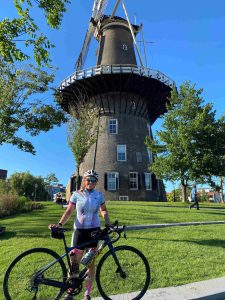 As I look back on my first year at Mimetas as a Marie Curie fellow, I think of all the techniques I learned and all the friends I have made. My background is in Biomedical Engineering with an emphasis in Regenerative Medicine, so coming to Mimetas to make an Artery-on-a-chip seemed a little daunting at first. However, Mimetas is a great company full of warm and inviting people. I quickly got acclimated to the Dutch culture of having a borrel (a Dutch word for drinks with colleagues or friends) every Friday after work.
As I look back on my first year at Mimetas as a Marie Curie fellow, I think of all the techniques I learned and all the friends I have made. My background is in Biomedical Engineering with an emphasis in Regenerative Medicine, so coming to Mimetas to make an Artery-on-a-chip seemed a little daunting at first. However, Mimetas is a great company full of warm and inviting people. I quickly got acclimated to the Dutch culture of having a borrel (a Dutch word for drinks with colleagues or friends) every Friday after work.
I have learned so much already in my first year. It took a few experiments to feel comfortable with the microfluidic device and to understand how I was going to design my model, but I quickly became confident that I will be able to develop an excellent microfluidic artery model in the upcoming years.
Before moving to the Netherlands, cycling was my main hobby so it was perfect to move to a country where everyone cycles. I love getting to ride my bike to and from work every day. I have also taken time this spring to explore the Netherlands on my bike. I even did a 225 km tour to see the countryside.
As a Marie Curie fellow, I look forward to the future collaborations in the consortium, and to the relationships I will develop over the upcoming years. I am excited to continue creating my international network, and diving into science. I am eager to continue my research at Mimetas to develop on Artery-on-a-chip in the OrganoPlate® in hopes of developing a model to study Endothelial Dysfunction.
Expanding the personal and scientific horizon – Tingxiang looks back to her first year in the project?
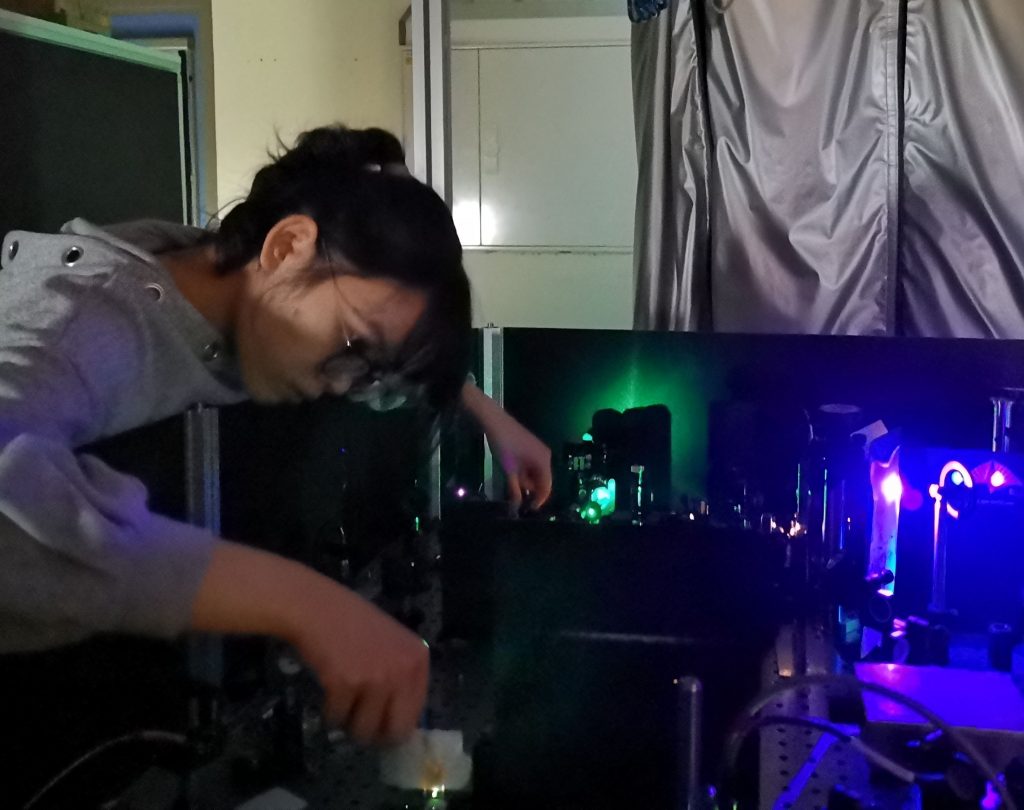
In July last year, I joined the group of Prof. Dietzek at Leibniz-IPHT as an early-stage researcher with a Marie-Curie fellowship. My background is optical engineering, but since my project is interdisciplinary, I also acquired knowledge of chemistry and biology. Thanks to the project and my group, I am not alone on the way of science. In the past year, I learnt a lot of useful skills, which will support my research in my PhD period and even in my future career. For example, I studied how to incubate the cells and prepare the cell samples, handle the microfluidics from Mimetas and how to operate different setups such as streak camera, TCSPC and a transient absorption microscope. For life, it does difficult for me at first: the different life style, different language, different eating habits and so on. Thanks to Anja and my groupmates, I integrated into the new environment quickly. I attend the German class and the scientific training, join the social activities and the BBQ party, all of these expand my horizon and enrich my life. This is a challenge but also possible. I am looking forward to the next two years in Jena and in LogicLab, and time will tell.
Can we put a computer in a living cell?
Watch our new video explaining the background and ideas of the project. Many thanks to Alessandro and Michele from Aloop for bringing molecular logic computers to life and helping us to communicate our research to everyone.
New techniques and new friends – Keshav’s first year at Leibniz-IPHT
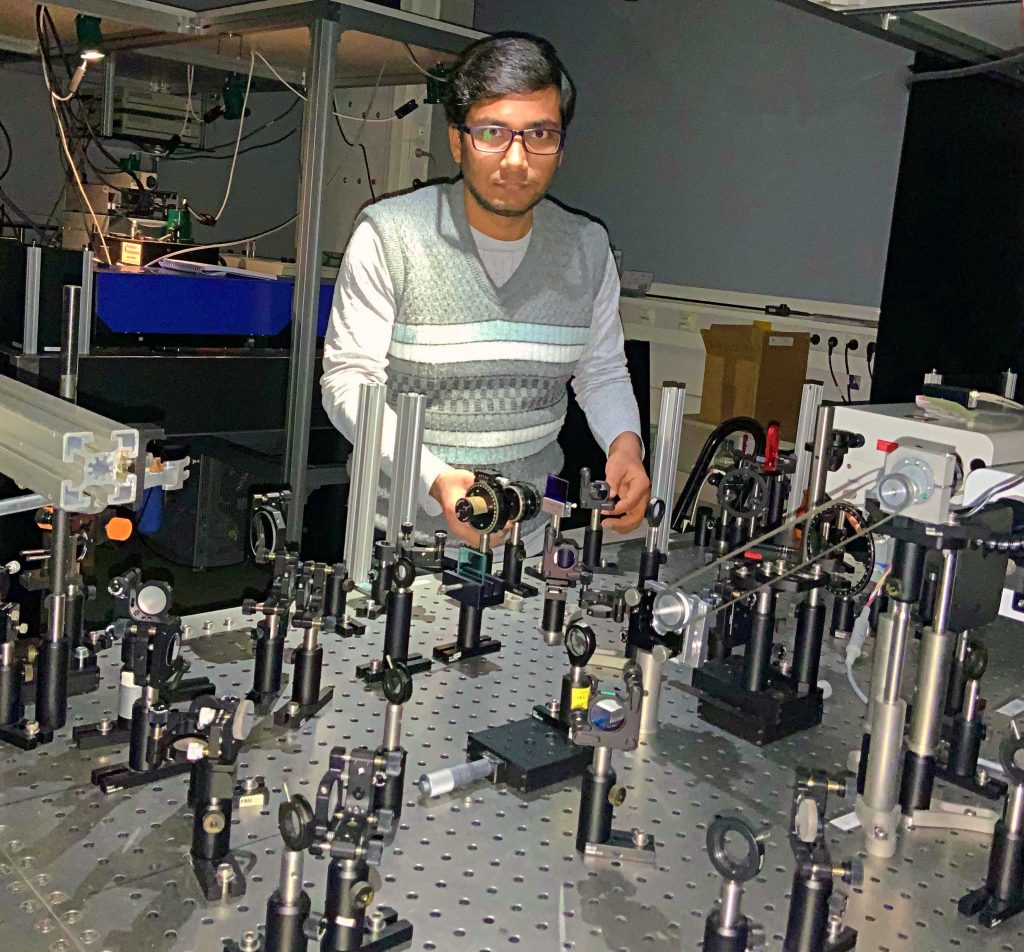
My interest in biphotonics and photophysics brought me to the group of Prof. Dietzek at Leibniz-IPHT Jena through the Marie-Curie fellowship. Being an engineer, I found myself in a group of mainly chemists. From them I learnt a lot of new things, for example I got trained from scratch in handling a pipette and cuvettes. My first six months passed by learning basic know-how of time-resolved spectroscopy, further developing optical systems and an imaging setup. I found Prof. Dietzek’s team very helpful to support newcomers.
Besides the scientific support, I’ve also personally integrated into the new environment. We celebrated “Dipawali” the Indian festival of light with everyone in the group. It was a festive and joyful moment. As well, practicing Yoga and meditation with my friends in Germany have brought us closer as a team.
Being a Marie-Curie researcher in a large European project has many advantages such as freedom to collaborate with other labs, secondment training or visiting other labs to learn new techniques from different fields, the generous funding of the innovative training network makes all these works feasible. The other side of the coin is that the Marie-Curie fellowship can’t be extended beyond three years.
10th and 11th March 2020: Network Meeting in Dublin
Our second network meeting was held on 10th and 11th March 2020 at Dublin City University in Dublin, Ireland. Due to the spread of the Corona pandemic in Europe, the meeting was significantly shortened and board meetings were held virtually. Nevertheless, all ESRs have been able to participate (two of them remotely) and enjoyed scientific and complementary training as well as some additional free time in Ireland. The ESRs got insights into intellectual property rights (IPR) provided by DCU Invent Centre and into recent research topics in Tia Keyes’ group at DCU such as “Spectroscopy and Plasmonics for Bio-applications” and “Electrochemical Impedance Spectroscopy of Biomembranes”. One day of the meeting was dedicated to training on “Communicate your Science” given by Alexander Schiller from Schiller&Mertens. The ESRs used the opportunity to put what they had learned into practice: they intensively discussed ongoing research and future plans using their well prepared posters.
Many thanks to Tia Keyes and the staff from DCU STEP office for hosting us and who made the meeting a success despite the corona chaos.
Early-Stage-Researcher position available at SciClus GmbH & Co.KG from February 1st, 2020
Candidates with a background in physics, chemistry, or informatics are invited to apply for a PhD position in the company SciClus GmbH&Co. KG (heads: Dr. Burkhard Jahn and Dr. Martin Presselt)
The aim of the doctoral project is to identify methods that are best suited (fastest at sufficient accuracy) to account for the influence of solvents and electrolytes, particularly specific interactions beyond continuum models, on absorption and fluorescence spectra as well as fluorescence lifetimes. The candidate will study interactions between molecules and environments at systematically varied model complexities. Thus, the fellow will be able to apply the most suitable models to predict optimum molecular functionalizations for ideal anchoring of dyes in membranes. Beyond such thermodynamical calculations on molecular ground states the candidate will model the influence of such dye-environment interactions on properties of photoexcited states, particularly fluorescence spectra and lifetimes.
Scientific training in partner institutions include investigation of environmental parameters characterizing vesicles that need to accounted for in theoretical modeling of dyes in vesicle membranes during 1 months secondments at University Leiden, Dublin City University, and Gdansk University of Technology, respectively, and during 3 months secondments at COSMOlogic GmbH.
The candidate must have a Master/Engineering degree in Physics, Chemistry or Informatics, preferably with majors in theoretical chemistry, theoretical physics, or computational materials modelling. The candidate should have good knowledge and interest in both experimental and theoretical work. Interest in the field of photochemistry, photophysics and molecular modelling is required. Knowledge in the field of (bio)chemical sensing, quantum chemistry and a track record in scientific publications are great assets. Fluent communication skills in English, both spoken and written are required.
Highly competitive and attractive salaries are offered, plus mobility and family allowances as applicable. The successful candidate will be part of the EU-funded Marie Skłodowska-Curie Innovative Training Network (ITN), Logic Lab. The employment within the project will have a maximum duration of 32 months (depending on the start date of the contract), however an extension might be possible upon availability. Sciclus is committed to increase the percentage of female scientists and therefore especially encourages them to apply.
Candidates will be required to meet the Marie Skłodowska-Curie Early Stage Researcher eligibility criteria: (http://ec.europa.eu/research/mariecurieactions/). In particular, at the time of appointment candidates must have had less than four years full-time equivalent research experience and must not have already obtained a PhD. Additionally, they must not have resided in Germany for more than 12 months in the three years immediately before the appointment.
How to apply:
Applications should be sent to Dr. Martin Presselt at martin.presselt@SciClus.de. Informal enquiries may be addressed to Dr. Martin Presselt at martin.presselt@SciClus.de
The application must be accompanied with the following documents in PDF format:
• letter of motivation,
• curriculum vitae of at most 3 pages,
• transcripts of records from University/University College and copy of your degree
• copy of master’s thesis or any other publications (if available),
• two written recommendation letters (e.g. one by your Master thesis supervisor) and the referees contact details
Planned start date: from 1st February 2020
The deadline for application is 15th January 2019.
22nd November: Long Night of Sciences in Jena
During the “Long Night of Sciences” taking place every two years in Jena, our Leibniz-IPHT researchers presented the concept of molecular switches and molecular logic gates to a very interested audience. Non-experts but also researchers from various disciplines visited our booth and became fascinated by our showcase molecular switch spiropyran. Upon irradiation, the compound instantly changes from the colorless spiropyran form to its blue merocyanine form (see our video on twitter). While explaining what we aim to do with molecular logic sensing, the thermally instable merocyanine isomerized back to the original colorless spiropyran. The little researchers and also many grown ups studied red cabbage for its pH-sensing properties (and what happens if we add some dry ice) and draw on “magic” spiropyran paper. It was lots of fun for all of us.
Successful kick-off: LogicLab started out with meeting of ESRs, supervisors and external speakers in Jena
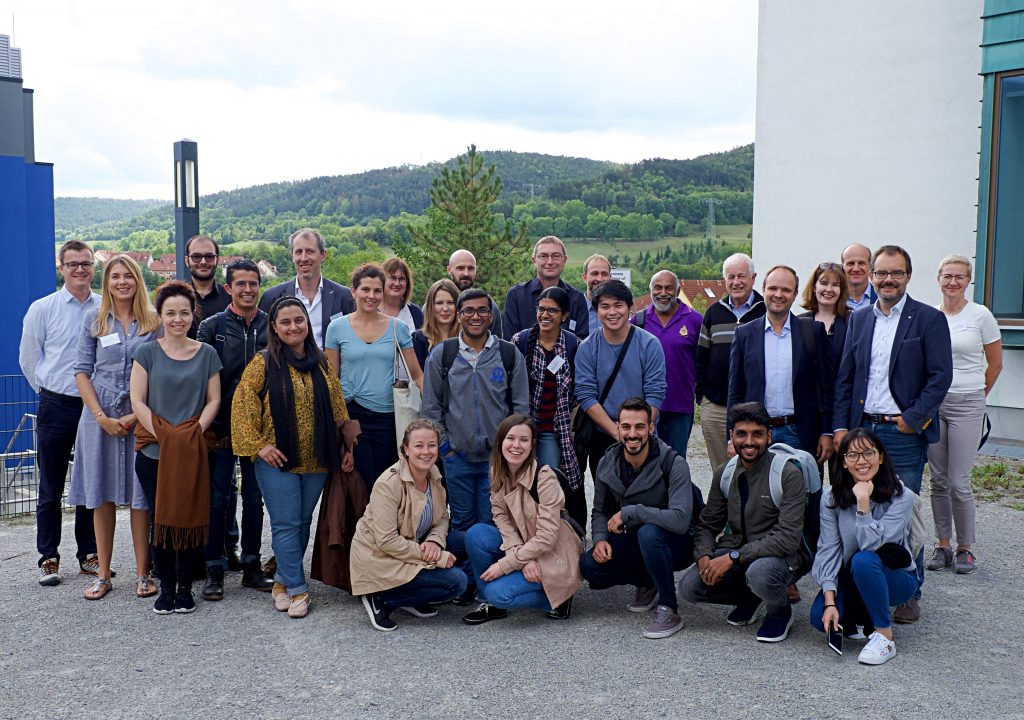
During the past week the LogicLab ESRs, supervisors and invited speakers from academia and industry came together in Jena. The students got new insights into research data management (provided by Friedrich-Schiller-University Jena). In his entertaining talk, our guest speaker AP De Silva took us to the origins of molecular logic gates and Frank Lehmann from Dyomics GmbH gave a talk on fluorescent dyes and labels from a company’s perspective. A workshop at our partner organization Microfluidic ChipShop Jena provided knowledge on microfluidics in point-of-care diagnostic. On the final day of the meeting, Alex (Schiller&Mertens) trained the ESRs on “How to plan and manage your PhD” using unconventional training methods. During the four days, the ESRs already became a team exchanging their working and living experience in different countries. After a long day with talks, the hike across the Jena forest to the restaurant was enjoyed by everyone.
Less than one week to our first LogicLab network meeting in Jena
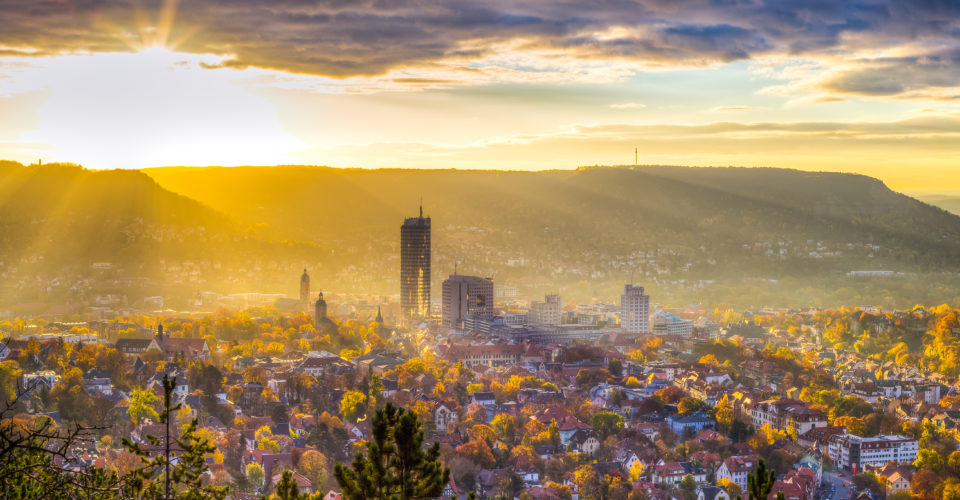
From 10th to 13th September the LogicLab ESRs and their supervisors will meet at Leibniz-IPHT in Jena. The ESRs will introduce themselves and have a great opportunity to exchange ideas as well as to become a team. In particular, we look forward to the talks of our brilliant invited speakers: AP De Silva (Queens University Belfast), Uwe Pischel (University of Huelva), Frank Lehmann (Dyomics GmbH) and Stefan Chlopicki (Jagiellonian Centre for Experimental Therapeutics). The young researchers can also look forward to hands-on experiments at the University of Jena and a workshop at our partner organisation Microfluidic ChipShop. The meeting will be complemented by the first unit of transferable skills training dealing with “planning and managing your PhD” provided by our partner Schiller&Mertens. Of course, the schedule leaves enough time to chat and social events, such as a short hike in the hills surrounding Jena – giving a great view on the City of Light.
Welcome on board – Welcome to Dublin: Amrutha and Ruben
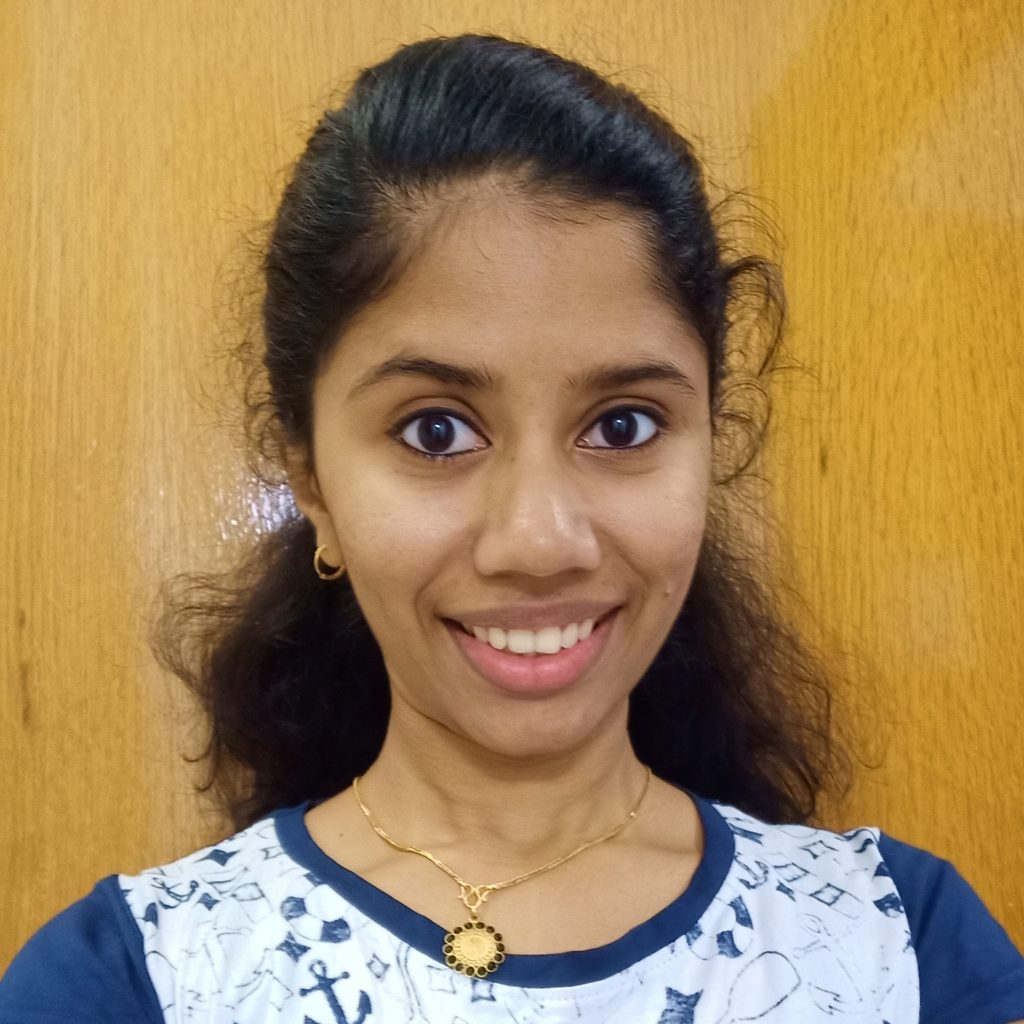
Amrutha Prabhakaran and Ruben Arturo Arellano Reyes started their projects under supervision of Tia Keyes at Dublin City University on 19th August. Amrutha obtained her Bachelor’s degree and Master’s degree in Chemistry. During her Master’s dissertation program, Amrutha was working on the synthesis and characterization of Boron and Nitrogen doped Graphene by hydrothermal process. After that, she was involved in a project on “preparation of advanced materials based on graphene-transition metal dichalcogenide (TMDs) nanostructures: electrochemical studies and application for the detection of biomarkers” in CSIR-Central Electrochemical Research Institute, India. In the LogicLab project Amrutha will prepare and apply highly fluidic lipid bilayers as 2D cell membrane models. The aim of her doctoral project is to build robust fluidic lipid membrane models into which photoactive supramolecular assembles are reconstituted. Apart from this, she likes to travel and dance.
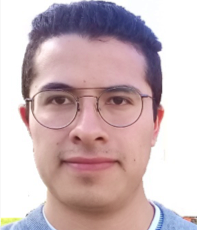
Ruben has a pharmacist degree by National Polytechnic Institute, Mexico and a master’s degree in organic chemistry by University of Nantes, France. He has always been passionate about medicinal chemistry. During his previous research experiences, Ruben worked on the synthesis of antiparasitic, antifungal and antiviral drugs. Within the LogicLab network he will be working on the synthesis of fluorescent sensors for NO/O2 and shear stress.
Ruben looks forward to integrate in a multidisciplinary and international team, as he loves learning foreign languages and discovering different cultures. He’s convinced this project will improve both his scientific and interpersonal skills.
Two ESRs started their projects in Leiden
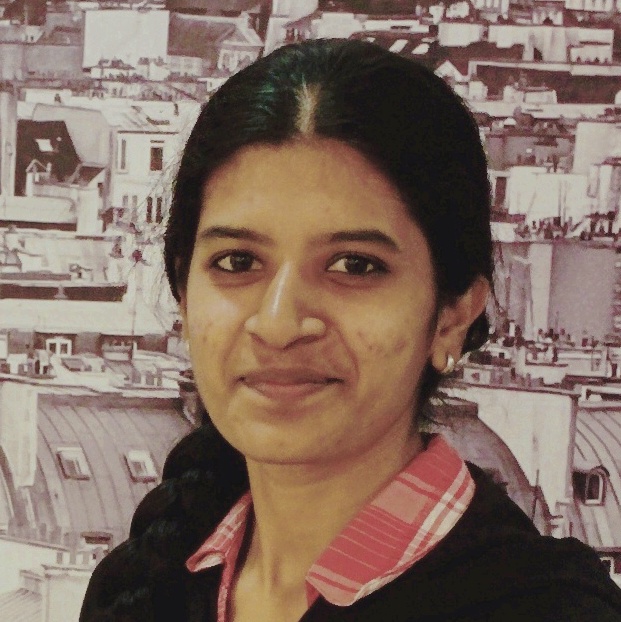
Kanchana Pandian and Haley Ehlers joined the LogicLab network as ESRs in Leiden/Netherlands on 1st July. Kanchana’s research work focuses on “Metabolomic study of on chip blood vessels in diseased conditions” under the supervision of Prof. Thomas Hankemeier at Leiden Academic Centre for Drug Research (LACDR, Leiden University). Her aim is to develop an effective chip based diagnostic tool for many blood vessel related disorders. Kanchana did her Bachelor’s Degree and Master’s Degree in Advance Biochemistry. During her master’s she studied secretory granule biogenesis using two protein hormones in the Neurobiology laboratory of the Bio Science and Bio Engineering department at Indian Institute of Technology Bombay. Later she was a project associate in Microfluidics Laboratory and working on ‘Development of microfluidics based health care diagnostics’ in Mechanical Engineering Department, at Indian Institute of Technology Madras. Her hobby is sketching, listening songs and do crazy clicks of nature’s beauty.
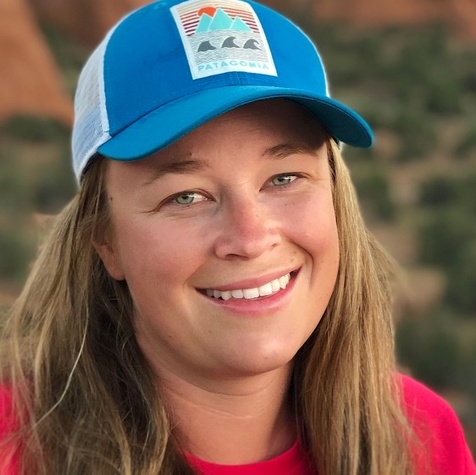
Haley joined the application development group at Mimetas in Leiden, Netherlands and is supervised by Lenie van den Broek. The goal of her project will be to develop a healthy and diseased microfluidic artery model in OrganoPlates® and to incorporate sensors and supramolecular logic gates in this model. With the development of such microfluidic models, it will be easier to study coronary artery disease in a more representative in vivo-like setting.
Haley obtained her bachelor’s in biomedical engineering from California Polytechnic State University in San Luis Obispo, California, USA before continuing to get her master’s in biomedical engineering with a Specialization in Regenerative Medicine from California Polytechnic Sate University. As part of her master’s program, Haley had a nine-month internship at Fate Therapeutics in San Diego, CA, where she worked on the scaling and optimization of their induced pluripotent stem cell lines. Also, during her master’s, she worked on several projects including developing a cell infiltration assay, studying angiogenesis in murine models and creation of blood vessel mimics using a perfusion model. After graduating, Haley worked as a Research and Development engineer at Scientia Vascular, a medical device start-up company in Salt Lake City, Utah developing guidewires and microcatheters for neuro and peripheral intervention. She was project manager of the hydrophilic coating process development of the guidewire. In her spare time, she enjoys hiking and biking as well as serving on the board of a nonprofit working to provide eye care to fight poverty.
Leibniz IPHT welcomes Tingxiang Yang
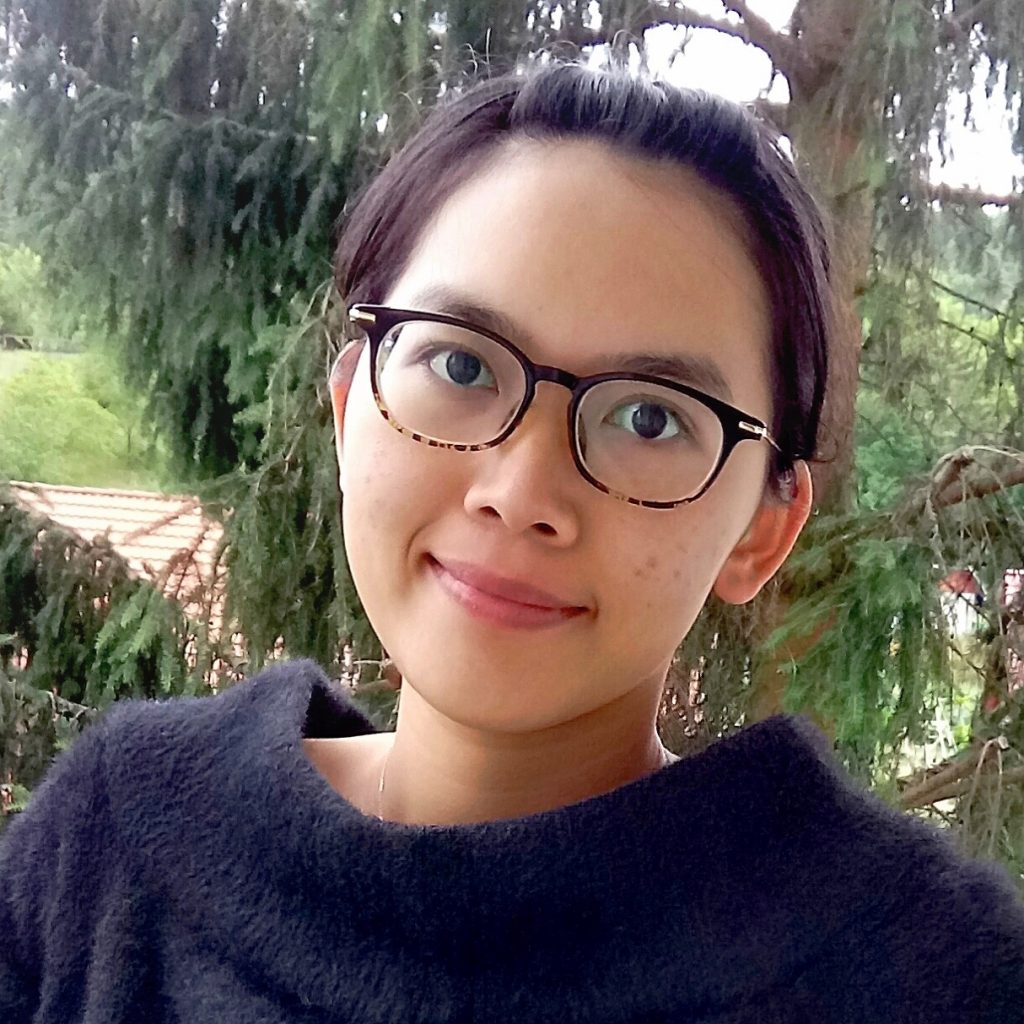
Tingxiang Yang, the second early-stage researcher at Leibniz IPHT just started her project on 1st July. She obtained her bachelor’s degree in Opto-Electronics Information Engineering from Changchun University of Science and Technology, China. Participating in a joint Chinese – Russian master program, Tingxiang completed her master’s degree in Optical Engineering from Changchun University of Science and Technology, China, and Saint Petersburg National Research University of Information Technologies, Mechanics and Optics, Russia. Her master’s work focused on restoration methods for image observed through turbulent medium.
During her PhD project she will study transient absorption microscopy of supramolecular logic gates in vitro and ex-vivo. In her spare time, Tingxiang like hiking in the mountains and photography. Definitely, Jena is the perfect place for both.
Welcome on board – Welcome to Leibniz IPHT
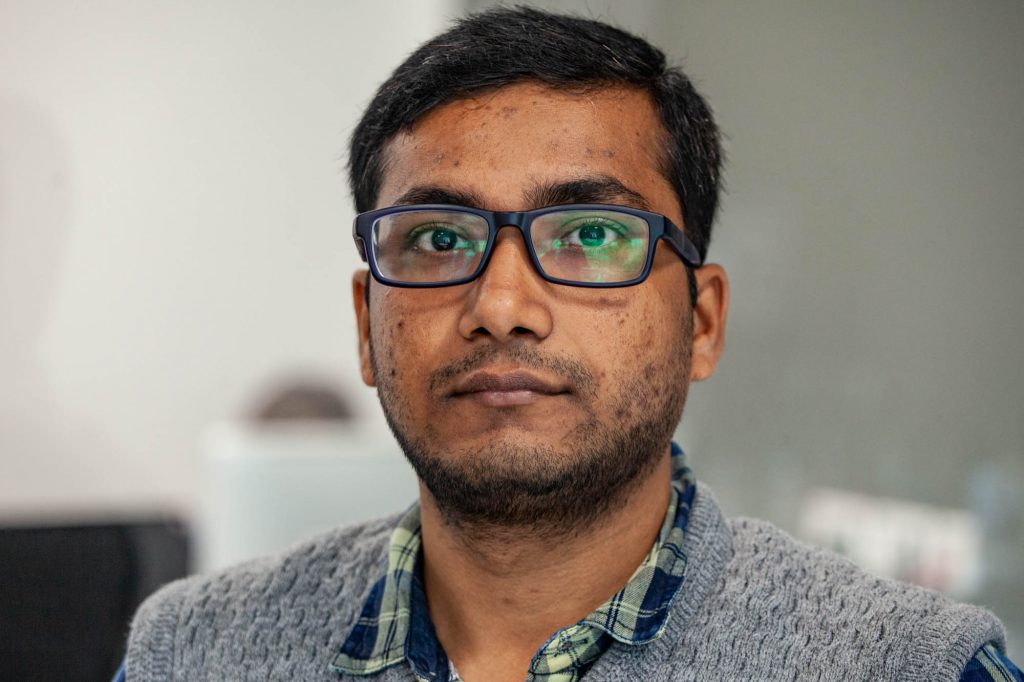
On 6th May, Keshav Kumar Jha started his PhD project at Leibniz IPHT. The aim of his research is to evaluate photo-induced excited state properties of molecular sensors using ultrafast time-resolved spectroscopy and fluorescence spectroscopy.
Keshav did his bachelors education in Electrical engineering from West Bengal University of Technology, Kolkata, India. Consequently, masters in Optoelectronics and Laser Technology from Cochin University of Science and Technology, Kochi. To pursue his master thesis, Keshav joined APML lab under Prof. Varun Raghunathan at Indian Institute of Science, Bangalore, India. During his master thesis, Keshav developed a multiphoton microscope to image and characterize nanostructures and biological samples. Further, he worked as a research assistant in the same lab and studied ovarian cancer cells to observe how SKOV3 and OVCAR3 cells change the collagen environment around it. Keshav’s work under Prof. Raghunathan led to authorship of two international conference publications and coauthorship of a journal publication. Personally, he likes to learn and teach Yoga and meditation.
Applications are closed
The latest closing date for applications to ESR positions within LogicLabwas 30th April 2019. Overall, more than 230 candidates (59% male and 41% female) from 44 different countries applied. Many thanks to all applicants for their time and commitment.
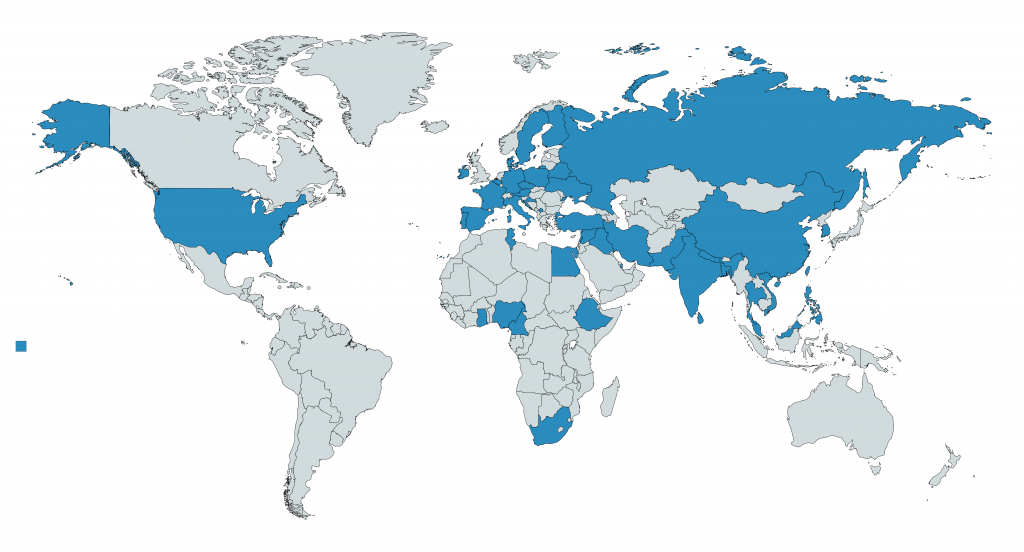
Kick-off Meeting – 22nd January 2019
The LogicLab kick-off meeting took place on 22nd January 2019 at Harnack-Haus in Berlin. Thanks to all participants for teaming up and their contribution to discussions.
